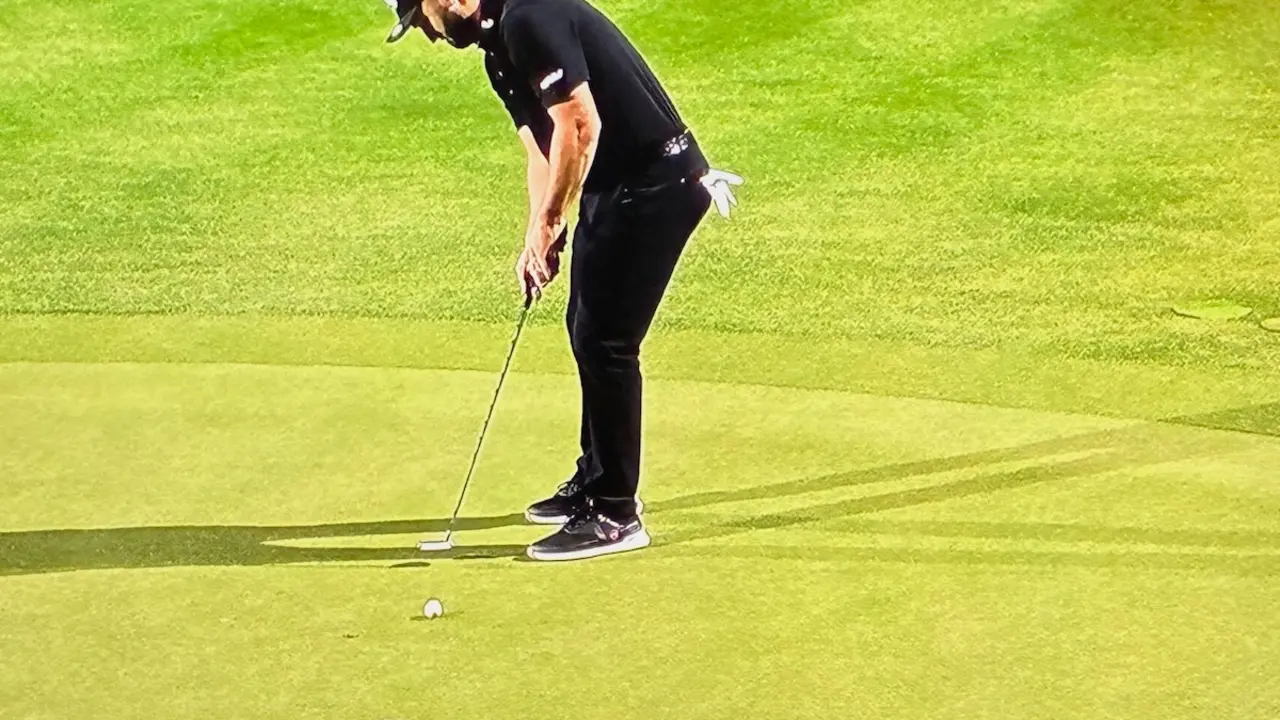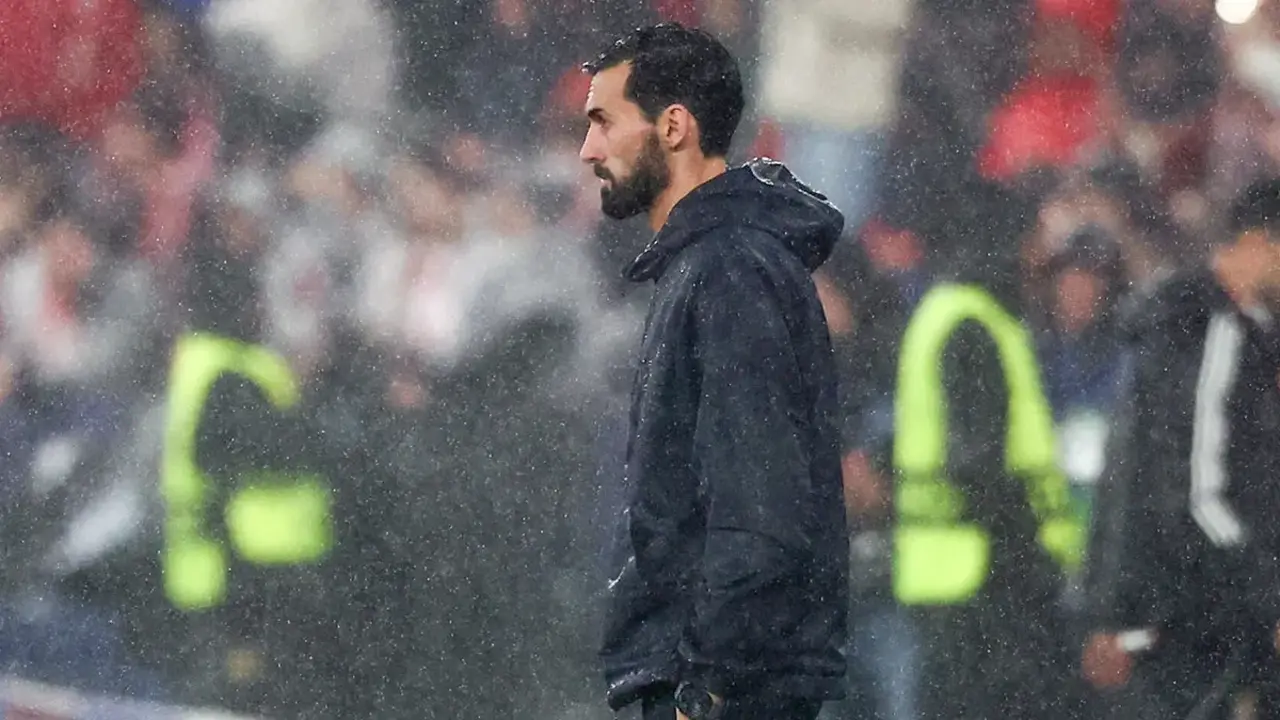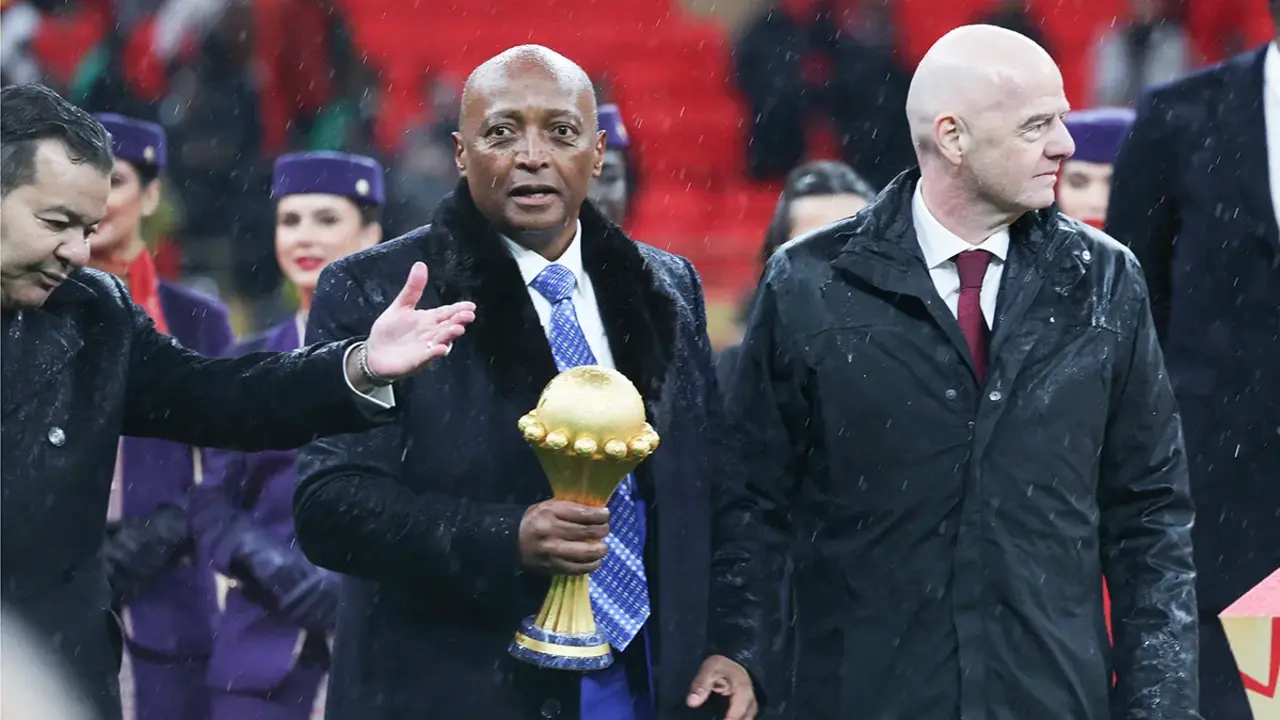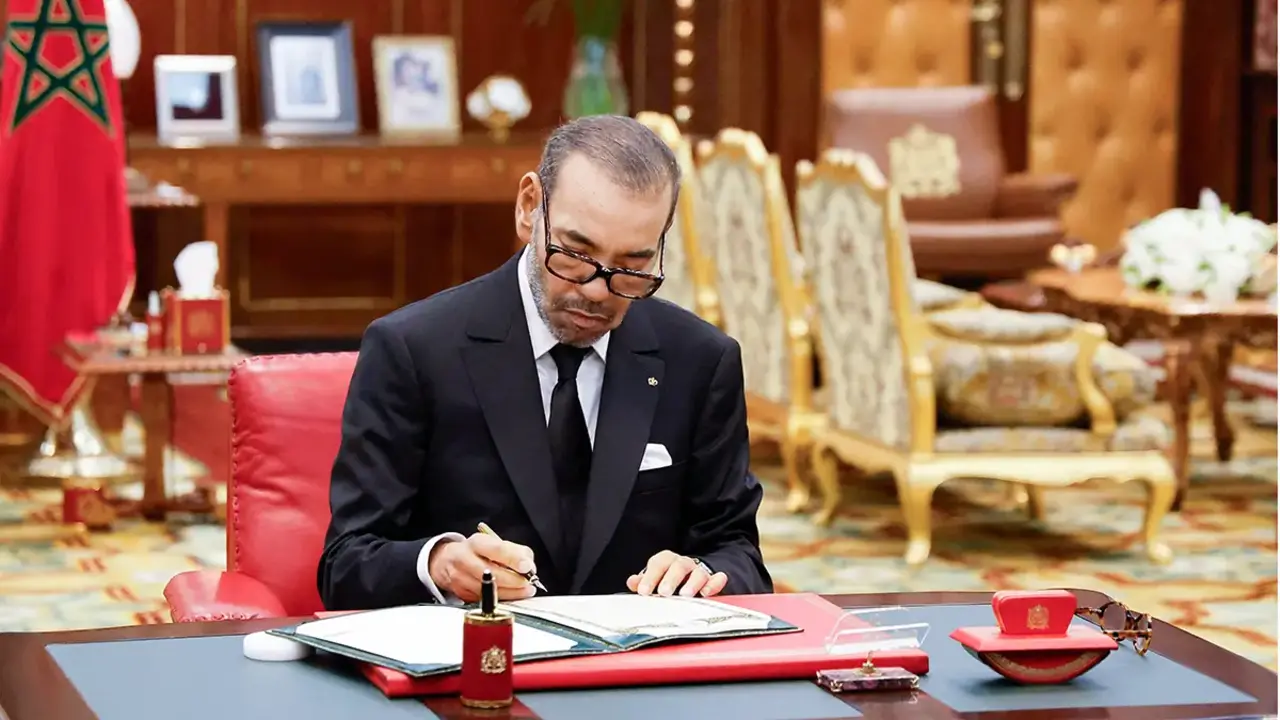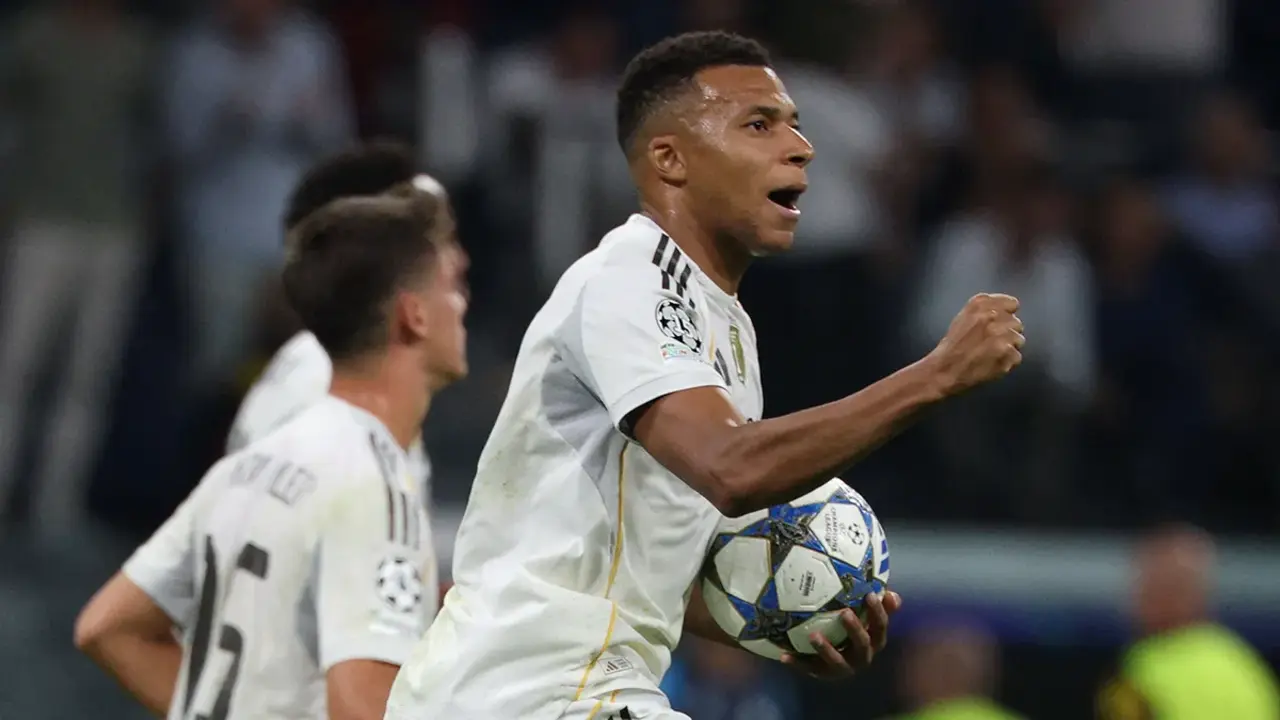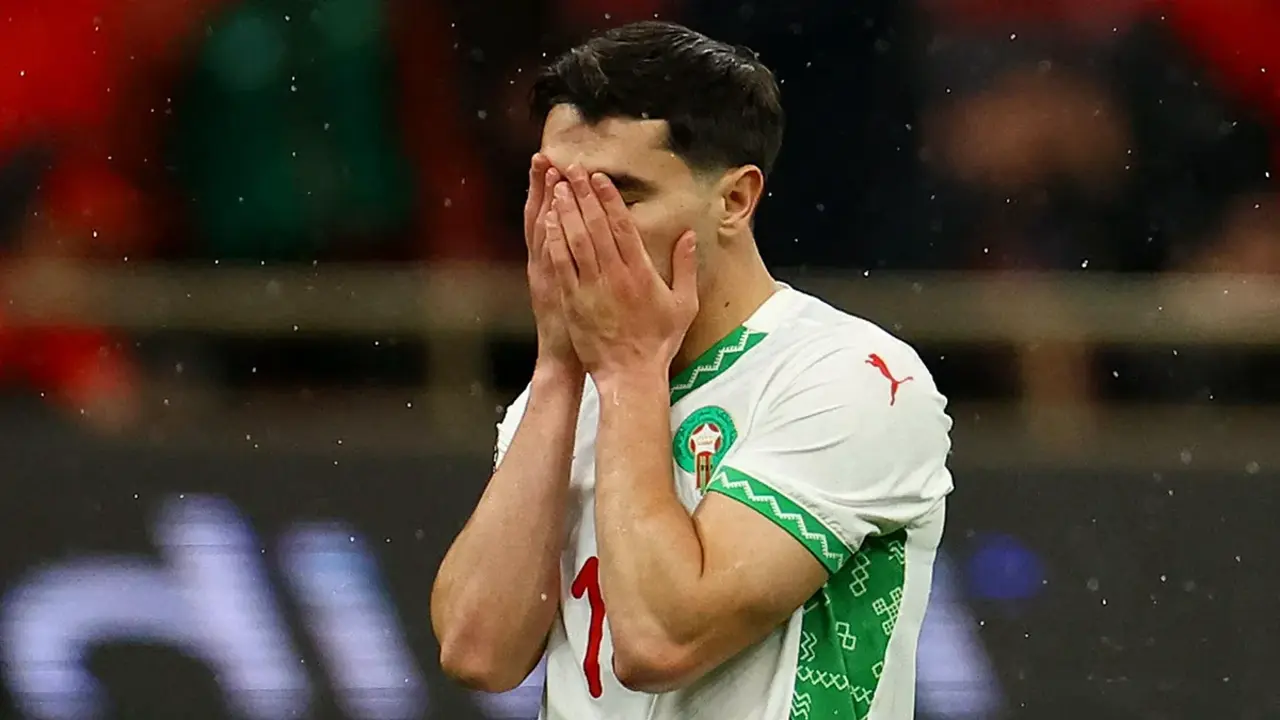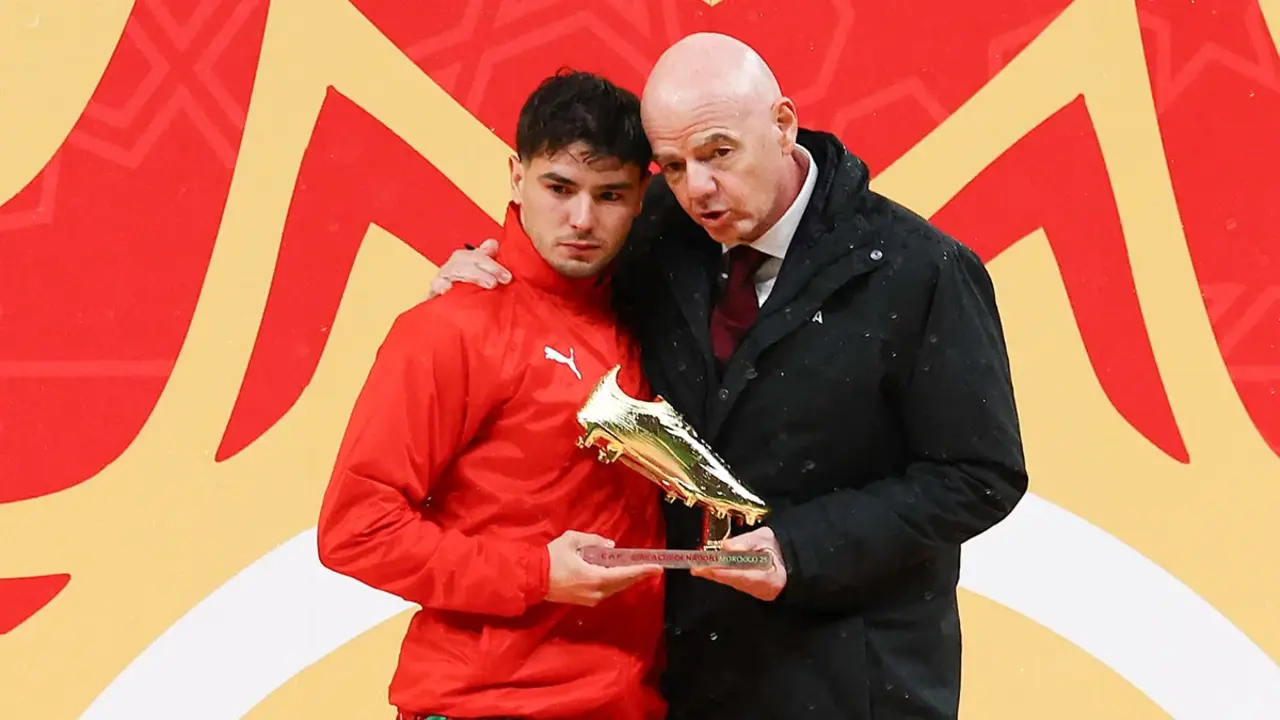Alberto Edjogo: "Football is something very powerful in Africa that has managed to avoid civil wars"
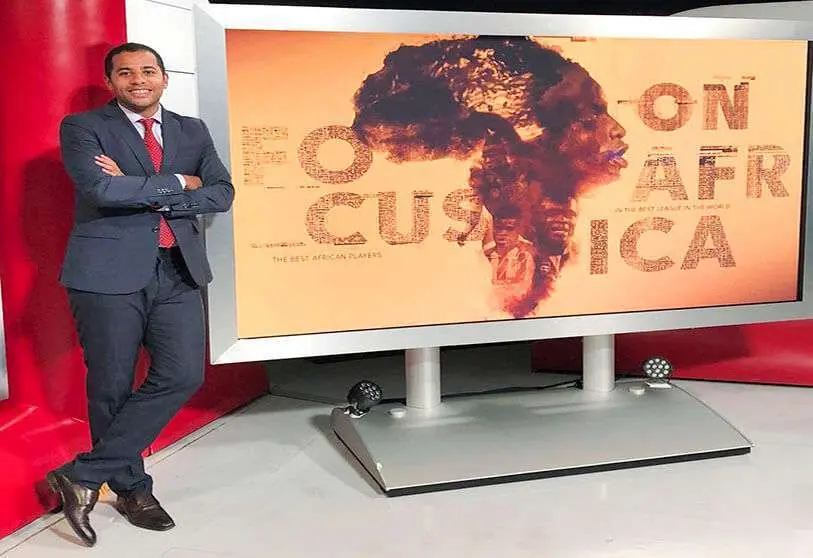
Former player of that "other football". The one with no spotlight and no fame. The one that forces you to fight with the football overalls for Second Division B and Third Division every weekend. Alberto Edjogo-Owono (Sabadell, 1984) was also a full international for Equatorial Guinea. Now he dissects football as a valued commentator and has written Indomable: cuadernos de fútbol africano (Panenka, 2019) (Untamed: African Football Notebooks, in english) to teach us about African history through the football lens. He has skilfully mixed it with politics because in Africa, football and politics are two inseparable realities. Edjogo has been watching Atalayar through the final phase of the confinement, hoping that his great passion since he was a child will return and he is convinced that the end of the season will be very intense and exciting.
Although you didn't make it to the elite of club football, that didn't stop you from staying involved in the sport.
My dream had always been to be a footballer. Ever since I was a little boy with my brothers, I've played football, I've always been on pitches with a ball under my arm... I tried and that's why my conscience is clear, but the funnel is getting narrower and narrower and only the chosen ones are arriving. I'm fortunate to be able to continue living off football from a golden point of view. I never thought I'd get involved in sports communication, but since I took my first steps in 2011 people have been giving me good feedback and little by little, I've been making a name for myself.
Does the world of football need to talk more about football and less about everything else?
I think there's room for everything. We all don't like football in the same way. You don't have to be Taliban. Not everyone likes it as a sport, they like it for everything surrounding it. Cristiano Ronaldo's hair colour, frauds at the tax office, relations between footballers and singers... I like football because of the game. If I liked controversy or sensationalism I would surely go to comment on other things. I understand that there are people who approach football in a different way and you can't fight against that either.

How did you come up with the idea of writing by mixing football, Africa, history and politics?
I wanted to make a book to tell about my experience as a football player. I played in the third division and in the second division, where I had a living wage. I wanted to make a book explaining my experiences so that it would serve new generations and learn from their mistakes. I realised that the really important thing in my professional life is not my matches in Third Division, but the trips with the national team of Equatorial Guinea. My father's country of birth and my second nationality. It's the national team's crest that I've defended. When I was halfway through the book, I changed the subject. I kept my personal experiences with Equatorial Guinea and added stories of African football relating them to territorial conflicts, politics, geography, colonial heritage, desire for freedom, corruption... to bring the black continent closer to the people. I don't know why it is so difficult to have that kind of knowledge in Spain, maybe it is because it is not well explained at school... there are people who ask me if Mali and Senegal are the same country. These are things that strike me, that's why I gave the book that informative and didactic tone.
Is there a lack of football culture? How far should we demand adaptation to players from other countries, cultures, religions...?
Those who don't adapt stay outside. The African player has a stigma: he is not orderly, not disciplined, not organised... I always say that it is very unfair to ask a talented and physical player who comes from any village in, for example, Mauritania where he has not had discipline or habits, the same as others who have had all that since they were children. Nevertheless, when you reach the elite, nobody will wait for you. You have to give immediate performance. The one who doesn't adapt goes out the door. A lot of quality players who have moved from Africa to Europe and looked like they were going to stand out have not been able to adapt to the European rhythm either because of attitude or because of the disorderly habits they acquired in their childhood. Those who have arrived are taking advantage of the good African spirit. Africa is a continent of more than 50 countries and it is very difficult to generalise, but the joy of living, the desire to celebrate things, the fun, the dancing, the singing... that is present throughout the continent... if they keep that and add to it European discipline, organisation, habits... they end up triumphing.
Now there is a tendency for good players from many Muslim countries in North Africa to go to the Persian Gulf instead of jumping to Europe because the culture is closer to theirs and they prefer to continue in the same environment they have been living in than think in terms of football progress. It's a very interesting issue that explains why some people are not willing to adapt and have the right to do so.
Algeria. Football and religion. In your book you tell a story where your national team has to decide whether to observe Ramadan or prepare for a historic match. Did you find it difficult to write about such a sensitive subject?
Travelling opens your mind. While you were staying in a super-luxury hotel with Equatorial Guinea there were some broken tiles that went from the hotel door to an artificial beach in Malabo. I wondered how it could be possible that in such a luxurious hotel no one would take care of maintaining the tiles that led to the beach. Someone came to me and said: "Hey, that's the way things are done here and you're not going to change it no matter how much you think it's better". He came to tell me that if those tiles were like that it was because everyone agreed that it had to be like that and it wasn't going to be me coming from the outside to tell them how they should be. I was stuck with it. Obviously, if we talk about issues that violate human rights we have to get involved, but culturally I don't have to say whether or not Ramadan should be held, everyone feels it the way they do. When Algeria played Germany in the 2014 World Cup Round of 16 - meaning an Algeria-Germany match from the famous biscotto between Austria and Germany in the 1982 World Cup in Spain that left Algeria out - Algeria's most extreme factions demanded that the players respect Ramadan, that the players should not drink water during the day, that they should go without food, that they should focus on religion. Another part of the country argued that Ramadan could be postponed until later if they were on a state mission outside the country. They were advised to play and then observe Ramadan. I thought that was interesting, it was a culture clash between them. It wasn't difficult for me to speak without an opinion because I'm very open-minded and I don't like to judge what I don't know in depth.

In the chapter on Egypt you write about the influence of the Arab Spring and the historical rivalry between two clubs. Is this a football that is in your blood?
Now there's a player whose name has become very familiar, Mohamed Salah, the Liverpool player known as The Pharaoh. There is another player, Mohamed Aboutrika, the famous midfielder of Al-Ahly, Africa's most successful team, who never left Egypt. It's a football that's lived very intensely. There was a time when the stands in Egyptian stadiums became places for demonstrations, associations, and claiming rights... and in that proliferation of military dictators throughout North Africa, they began to be overthrown in the famous Arab Spring. That shook up football in Egypt, which was very much in evidence because Al-Ahly, the African Real Madrid, was against the Mubarak regime. The players would go to Tahrir Square wearing the shirt to give up their lives for the freedoms of the people.
What did the 2010 World Cup mean for South Africa and for Africa?
As Desmond Tutu, South African Nobel Prize winner and friend of Nelson Mandela, said after the World Cup: "A lot of people said that South Africa was not ready to host a World Cup, but we proved them wrong". It was a "we can do it". The whole continent knew they could do it if they all went to one. But in Africa you have to start from scratch many times. You try to build something and suddenly something shakes you and throws everything to the ground and again you have to go back to the basics. Corruption, coups d'état, warring conflicts over swathes of land, like Cameroon and Nigeria. At the Berlin Conference it was decided to cut the map of Africa to the consumer's liking. There is an English-speaking strip in Cameroon and people are dying there. In 2019, Cameroon had to organise the African Cup of Nations and they couldn't because there was an open war on a strip that divides Cameroon and Nigeria. All these things are sticks in the wheel that don't let you move forward. It limits the potential of Africa, which is a continent where 50 per cent of the population is under 15. It is the continent with the most sustained and high growth, but you need a basis for it, a standard of growth. If that's done the evolution is going to be even greater.
How is the present of your other country, Equatorial Guinea?
The process of decolonization, with the exception of Ethiopia, Egypt, South Africa and Sudan, did not begin for the rest of the African countries until the end of the 1950s. Since the Africanist leaders were facing the colonial yoke, the European countries ended up leaving to give the sovereignty to the Africans. This is normal and natural. The Guinean is someone quite peaceful. They don't like conflict. There are neighbouring countries with the hottest blood. Sometimes they fail to claim what belongs to them as vehemently as they should. It is a small and controllable country, the capital, where the oil is located, is an island, it is easy to be controlled and avoid major problems from outside. Guinea is proud to be the way it is and to move forward as it can. Another thing is that it has only had two presidents in its history. It disassociated itself from Spain in 1968, 52 years have passed and one president has been in office for 12 years and the other for 40 years. You don't have the capacity to see in perspective if the president is good or bad. There are generations who have only seen one. A country with as much natural resource as Guinea seems to me to be more evolved. It has infrastructure, roads, buildings... in the most civilized parts, but it needs one more turn of the screw to keep growing.
Africa and football. Spain and football in times of health crisis due to the coronavirus. Do you see any similarity in that football is a social relief?
Of course, I do. Marco Reus recently said that players have a social responsibility. Football is not only entertainment; it is also a source of encouragement and there are many jobs linked to football. There are many hours of watching football where people forget about other things. The famous bread and circus. In Africa there is another dimension to it. I'm going to generalise, but the range of entertainment on offer is not as extensive as in Europe. Football plays a major role. When your team, or the national team, plays, the country stops. In a match like Nigeria-Cameroon or Algeria-Morocco, everything stops. Football avoided a civil war when Côte d'Ivoire first made it to the World Cup in Germany in 2006. It is very powerful. Many African leaders are keen to see football return because people will forget about their daily lives. In Spain we have realised that you can live without football, it's no big deal. But for footballers, life is sadder.

When it's as bad as it is in these pandemic times, do you think that when football comes back it will be understood differently?
It will be intense again. Even more so. There's a lot of contained, latent intensity that we don't know where it's going to break out. Many coaches are telling us that we have to learn to relativize. Not at all. The team that goes down will complain because the last few days are going to be played at an empty door, they will say that the schedule is not in their favour, that they have played every two days, that the VAR did not intervene in any play... It is said that there may not be VAR. Imagine a team wins the league by a half-millimeter offside, but there is no VAR so... Everyone approaches football in their own way. It unleashes passions. It brings out the worst in you, as Jorge Valdano used to say.
You made an exciting plea on the days when there were racist attacks in Spanish stadiums. Do you think you should suspend games?
When you face unpleasant situations, you have to take drastic measures. I advocate that the protagonists of the party should have the power to make decisions. Captains and referees must be able to stop a match if they are insulting one of my teammates. That's against the competition because it cuts the pace, but it's a necessary evil because you're explaining to people that if they follow that behaviour there's not going to be any football. I've been a footballer and I've suffered episodes of that kind. It's clear to me that anyone who insults me because of the colour of my skin has a problem. If someone has a complex and reflects it on me, the problem is his. It doesn't affect me, but there are groups of people who are affected and the players have to make decisions. Moussa Marega, the Porto player who was insulted and even given a yellow card, left the pitch because of racist insults. If I don't take action or impose a fine of 700 euros on the team whose fans are racist, it will seem natural in the school on Monday to insult the black, the Asian, the Hindu, the Maghrebi, the homosexual... anything that humiliates a group is punishable and drastic measures must be taken. Football is not a school where people in their 40s are educated, but it should not encourage bad habits. The main players in the game must be empowered to make decisions. There are cameras. You can tell who is insulting. If you are not able to behave in society you have no place in public environments. If you are a racist, we are not here to convince you otherwise, but in public you have to repress the complex or the trauma because it is not the fault of others that you behave this way.

